Easy Blog SEO
Make your blog found on google
SEO strategy nowadays is not only to do the meta tag in order to get ranked in google. And as google nowadays has improved its algorithm in website ranking, so it becomes more focus on Page Title or content, related to what popular searched from global searchers.
RVsitebuilder 7 provides the easy way to set SEO for your blog and every of its post.
Setting Areas
You can set SEO in 2 ways; by post or by site.
SEO By post
It means to set SEO for an individual post.
A. 3-dots Menu next to current post name you're editing
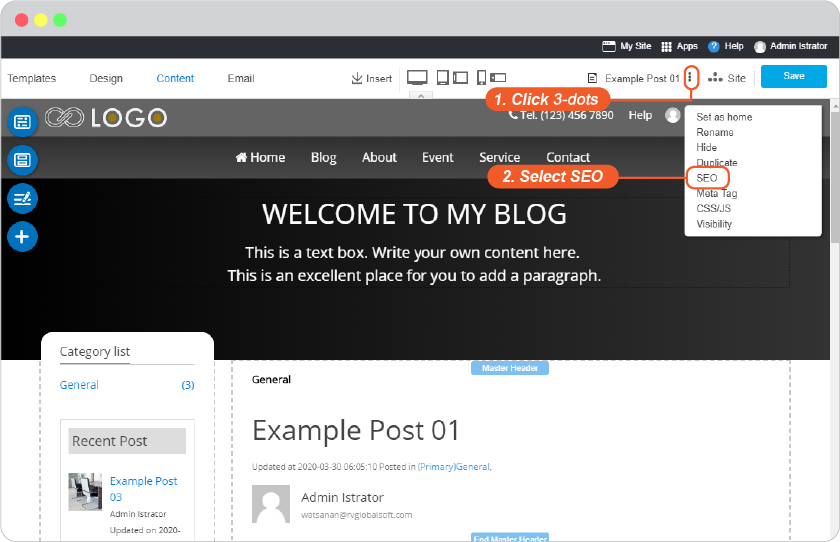
B. Site -> Blog icon -> post name
-
Click 3-dots after post names
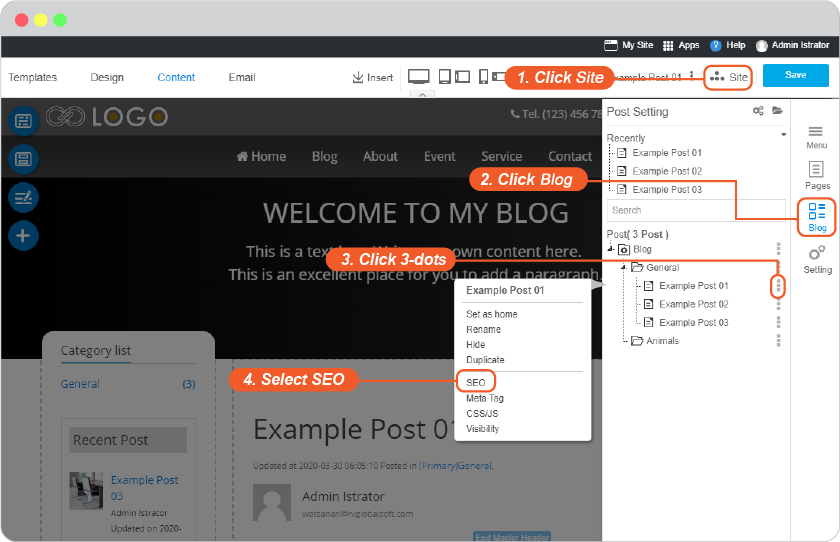
-
Once SEO clicked, you will be at Blog Management panel which is for the current post you're on.
Slide the slide-button to right to custom post's title and description to be more effective SEO.
You will see the Auto title and description are the automated as default.
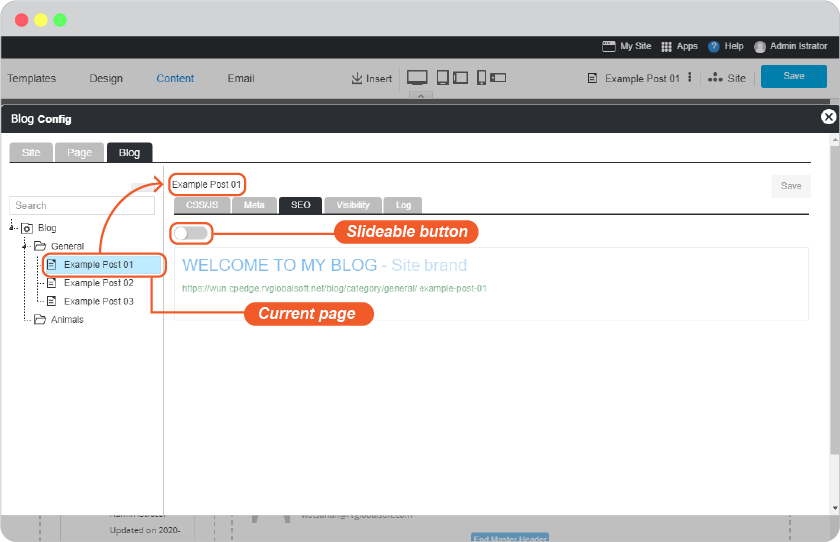
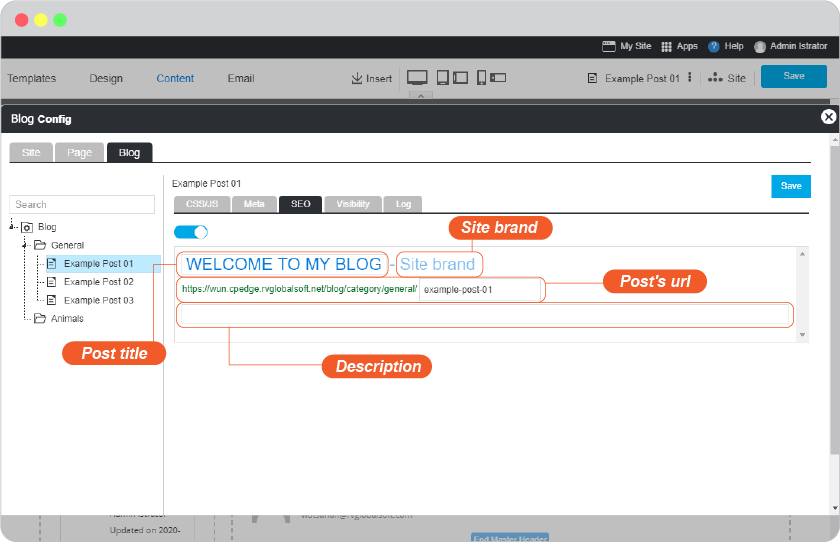
- Post title : You can edit post's title to be more search key than page name such as changing Home to RVsitebuilder CMS.
- Site brand : It is inherited from Site brand you defined as your company.
- Post's url : You can edit url of this post to be more search key than the normal such as changing
https://rvsitebuilder.com/blog/category/general/posttohttps://rvsitebuilder.com/blog/category/general/mypost - Description : Make a few less-is-more sentences for the seek-and-found you. A short description about your business.
Tips: Description for your blog should be short effective and quick understandable sentences with impact keywords people would use to find what they want relate to your business. Avoid using the very unique words which may relate to your company but people don't know about it. Localization is to focus on specific countries, be sure about your targeted customers and their locations.
SEO By entire blog
This means to set SEO that will be effect for the entire blog. You can edit on any individual pages to use different SEO on guide By post above.
Setting SEO by blog
-
At Site -> Blog icon -> Blog -> 3-dots after Blog
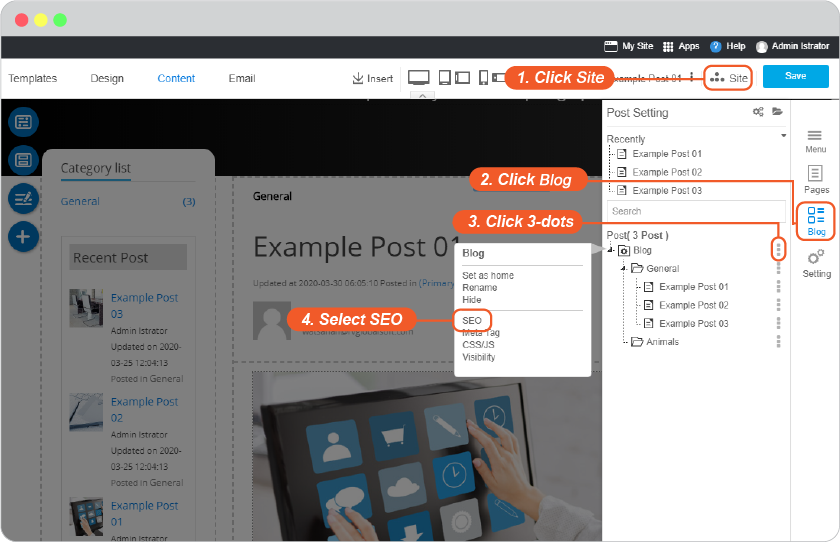
-
Once SEO clicked, you will be at Blog Management panel which is for the current your blog.
Slide the slide-button to right to custom the title and description to be more effective SEO.
You will see the Auto title and description are the automated as default.
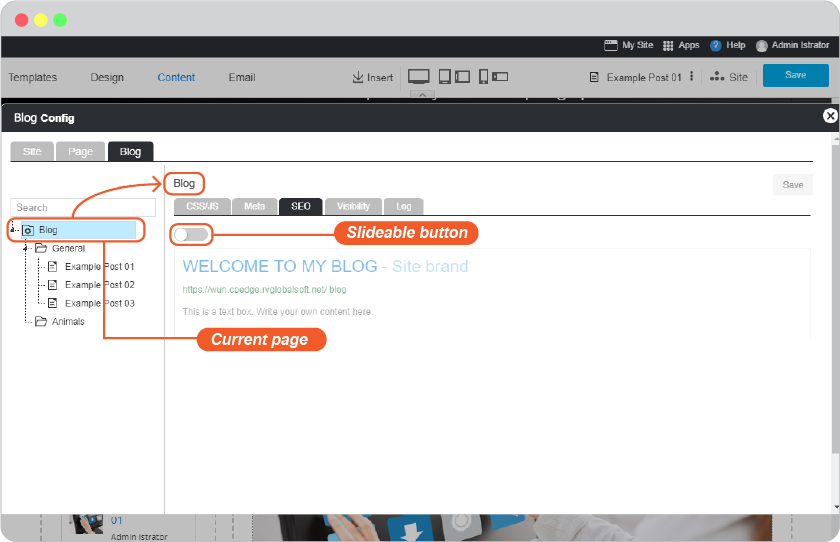
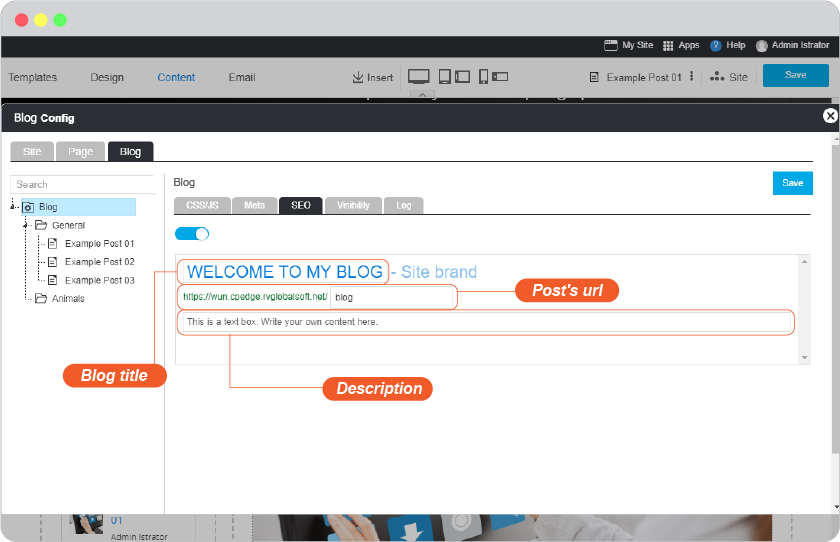
- Blog title : You can edit blog title to be more search key than blog name such as changing Blog to Travel Blog.
- Post's url : You can edit url of this post to be more search key than the normal such as changing
https://rvsitebuilder.com/blogtohttps://rvsitebuilder.com/travelblog - Description : Make a few less-is-more sentences for the seek-and-found you. A short description about your business.
Tips: Description for your blog should be short effective and quick understandable sentences with impact keywords people would use to find what they want relate to your business. Avoid using the very unique words which may relate to your company but people don't know about it. Localization is to focus on specific countries, be sure about your targeted customers and their locations.
Blog Management
Blog Management is to set base url for blog post and category.
Apps -> Manage -> Blog
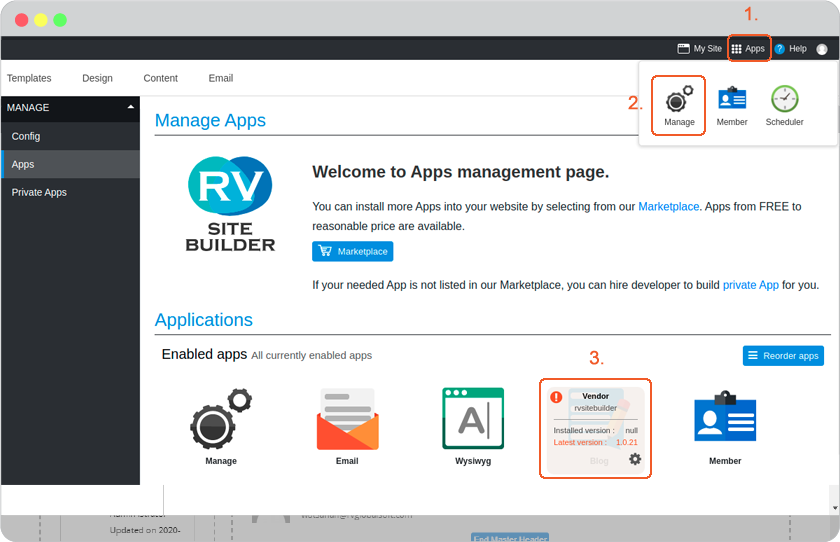
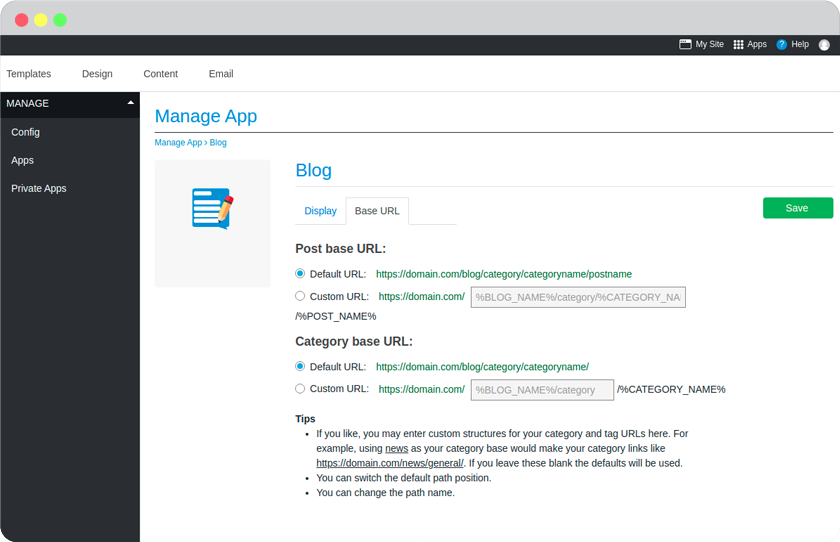
Base url setting is how URLs for your posts and categories will show that you can add more on it.
Default URL is what you can see on blog post and category when it's opened.
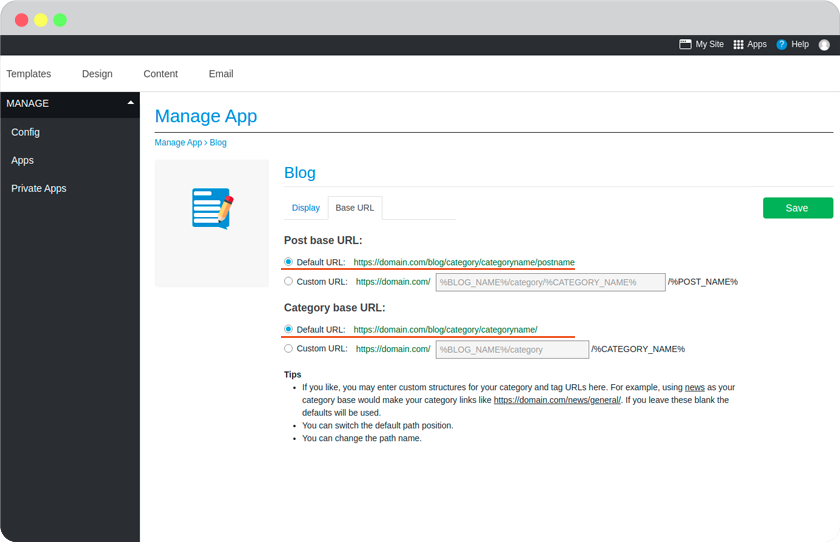
Sample of Post: https://domain.com/blog/category/categoryname/postname
It's : https://domain.com/blog/category/general/post
Sample of Category : https://domain.com/blog/category/categoryname
It's : https://domain.com/blog/category/general (general is default blog category)
Custom URL is what you can add more from default.
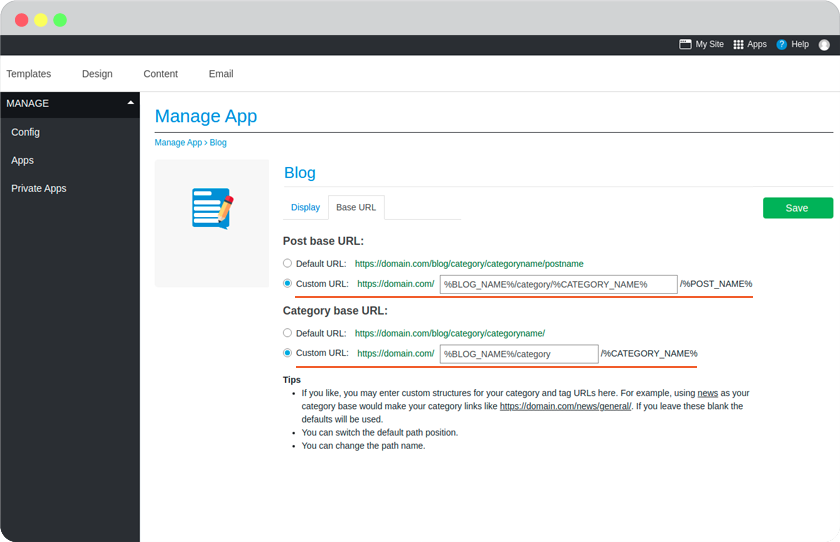
Sample of Post: [ %BLOG_NAME%/%CATEGORY_NAME%/ ]%POST_NAME%
You may custom to : [ %BLOG_NAME%/%CATEGORY_NAME%/inblog ]%POST_NAME%
It will be: https://domain.com/blog/category/general/inblog/mypost/
Sample of Category : [ %BLOG_NAME%/ ]%CATEGORY_NAME%
You may custom to : [ %BLOG_NAME%/newin ]%CATEGORY_NAME%
It will be: https://domain.com/blog/newin/general/